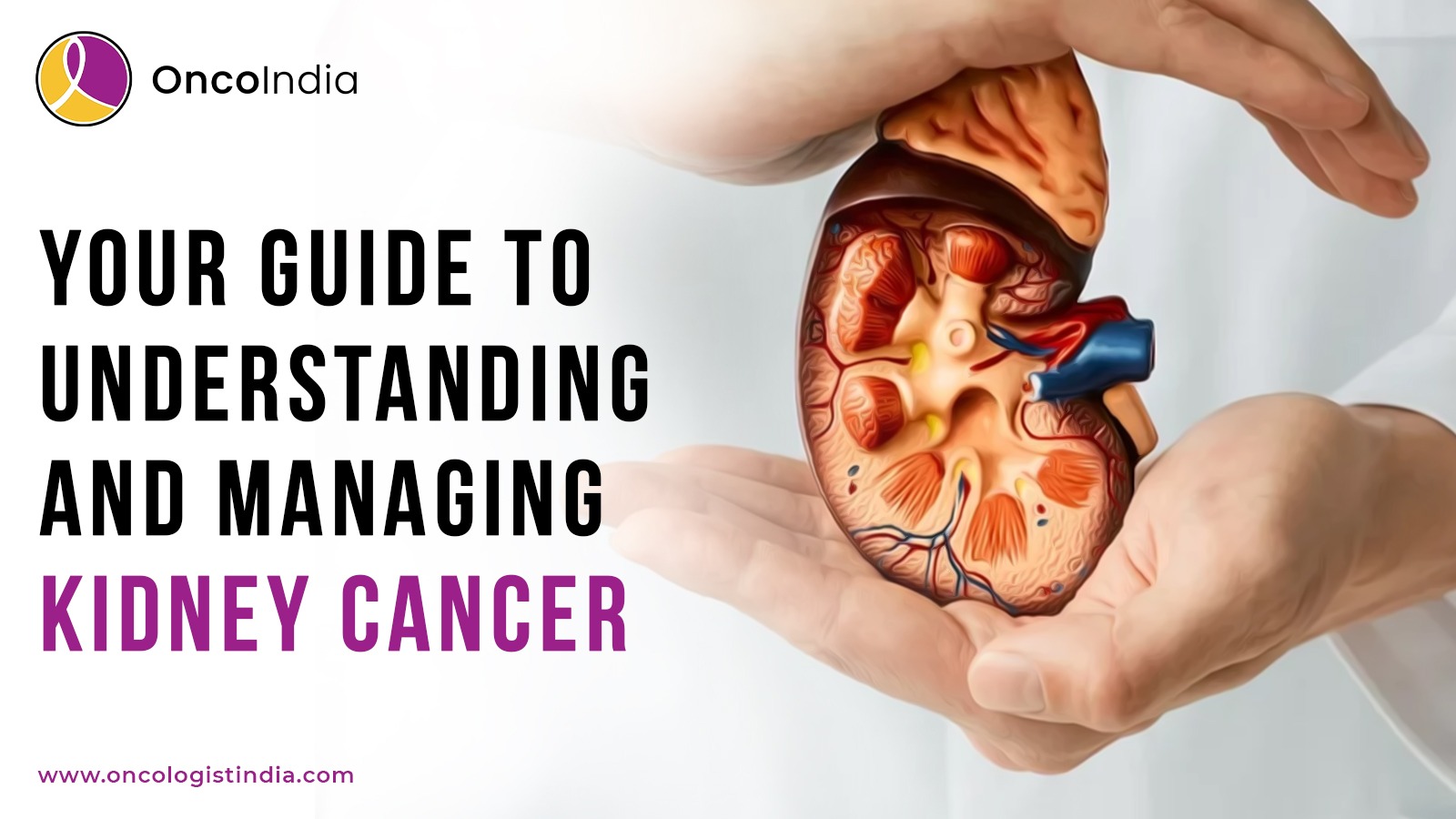The human body is a masterpiece, where every organ serves a purpose and works in perfect harmony. In human body, kidney serves one of the most important purposes, which is acting as a natural filter. Kidney cleanses our blood, balances the fluid level, regulates blood and balances the electrolytes in the body. Unfortunately,kidney cancer can impair these essential processes. As the diseases progresses, it can also spread to other parts of the body, further damaging the body’s perfect harmony. In this blog, I’ll be talking about the types, symptoms, risk factorsand treatmentsfor kidney cancer.
RCC is the most common type of cancer in adults, accounting for about 90% of the cases.
It develops in cells, lining the small tubes of the kidney.
Subtypes include: clear cell RCC, Papillary RCC, Chromophobe RCC
TCC starts in the renal pelvis, where the urine gets collected before entering the bladder. This type of cancer accounts for about 5-10% of the cases.
A very rare form of kidney cancer which develops in the connective tissue of the kidney. This type of cancer is very aggressive and can spread quickly to the other parts of the body.
Nephroblastoma is a rare kind of kidney cancer which often affects children under the age of 5. It is the most common type of cancer in children and it is highly treatable.
A benign(non-cancerous) tumour of the kidney, which can sometimes be confused with RCC. It does not spread and is often removed surgically.
Symptoms:
Symptoms of kidney cancer may not be very noticeable in the early stages, but as the cancer grows, the following symptoms may develop:
This is one of the common symptoms, where the urine may appear pink, red or brown.
Persistent pain that occurs in the lower back, side or below the ribs. This pain is usually felt in the side of the body corresponding to the affected kidney.
In some cases, a tumour can be felt as a lump or a swelling on the side of the abdomen.
constant tiredness is one of the common symptoms in advance stages of kidney cancer.
Recurring fevers that aren’t caused by any viruses or infection may be a sign for kidney cancer.
Sudden and unintentional weight loss occurs as the cancer progresses.
Hypertension can occur due to several factors related to the disease and should be considered as a sign of kidney cancer.
A reduction in red blood cells in our body, leading to dizziness, fatigue and pale skin might be a symptom.
A noticeable decrease of appetite must not be taken as a grain of salt as it is one of the common symptoms for kidney cancer.
Swelling in ankle or legs can occur due to impaired kidney function

Risk factors:
There is no exact cause for kidney cancer, but there are certain risk factors which can increase the likelihood of the disease. These risk factors may contribute in the development of kidney cancer.
Smoking, obesity, hypertension, chronic kidney disease and dialysis, exposure to toxic chemicals, misuse of pain medication, radiation exposure, cystic kidney diseases and genetics are some of the common risk factors when it comes to kidney cancer.
By managing these risk factors and altering life style accordingly, you can lower the chances of developing kidney cancer.
Treatment:
The treatment for kidney cancer depends on several factors including the stage of cancer, the size and the location of the tumour. Here are some of the most common treatments for kidney cancer:
Surgery is the primary treatment for most stages in kidney cancer, especially if the tumour is localized(confined to a particular area). The two types of surgery are:
Radial nephrectomy:
This surgery involves in the removing of entire kidney along with adrenal gland(a hormone producing gland located on top of each kidney) and surrounding tissues. This is typically used for larger tumours and in advanced cases.
Partial nephrectomy:
In this surgery only the cancerous part of the kidney is removed. It is usually done when the size of the tumour is small or when a patient has only one functioning kidney.
This is a minimally invasive procedure for patients who can’t undergo any surgery or when the tumour is small and localized.
Cryoablation: This process uses extreme cold to freeze and destroy the tumour cells.
Radiofrequency ablation: Uses high energy radio waves to heat and destroy the tumour.
Arterial embolization: A procedure where blood flow to the tumour is blocked by injecting materials into the artery (a vessel carrying blood from the heart) supplying oxygen to the kidney.
Targeted therapy uses drugs designed to attack specific molecules or pathways that are important for the cancer cell growth. These drugs are often used in advanced stage of cancer.
Immunotherapy boosts the body’s immune system to fight the cancer. It is mostly used in advanced stages.
radiation therapy is used to relieve symptoms such as pain or bleeding, especially if the cancer had spread to other organs. These are some of the primary treatments used for patients with kidney cancer based on the factors like stage of the cancer and the patient’s overall health.
Conclusion:
While kidney cancer can be a serious, diagnosis, advancements in early detection, surgical techniques, targeted therapies and immunotherapy had significantly improved outcomes for several patients. If you or your loved one are concerned about kidney cancer or are seeking expert care, Dr. Shivakumar Uppala, one of the best cancer specialists in the country renowned for his kidney cancer treatment, is here to guide you through personalized treatment options. Dr. Shivakumar Uppala is an oncology surgeon who strongly believes in individual assessment and treatment plans. Kidney cancer can be fatal so don’t compromise on early diagnosis and do visit OcnoIndia for the best cancer treatment in the country.